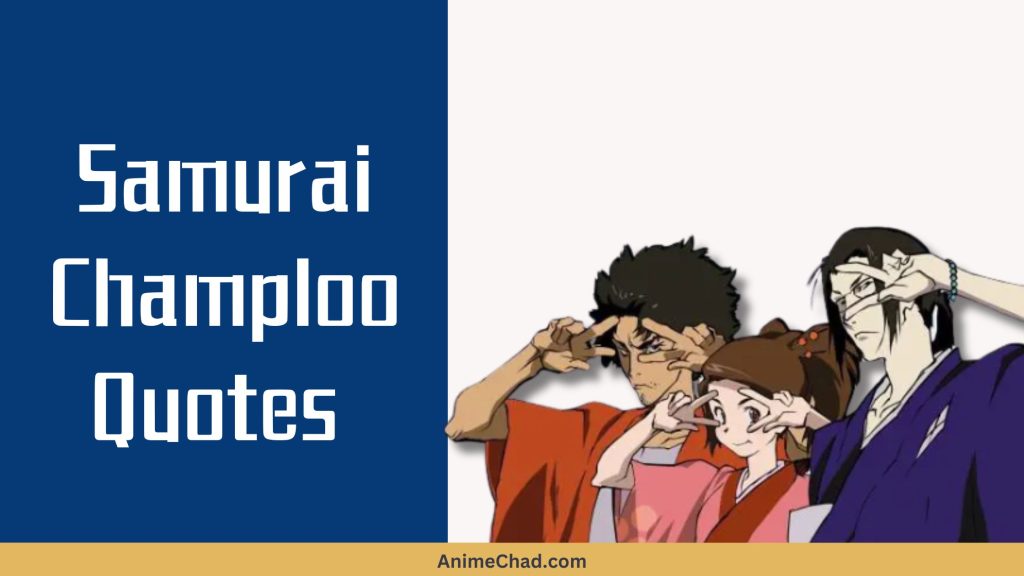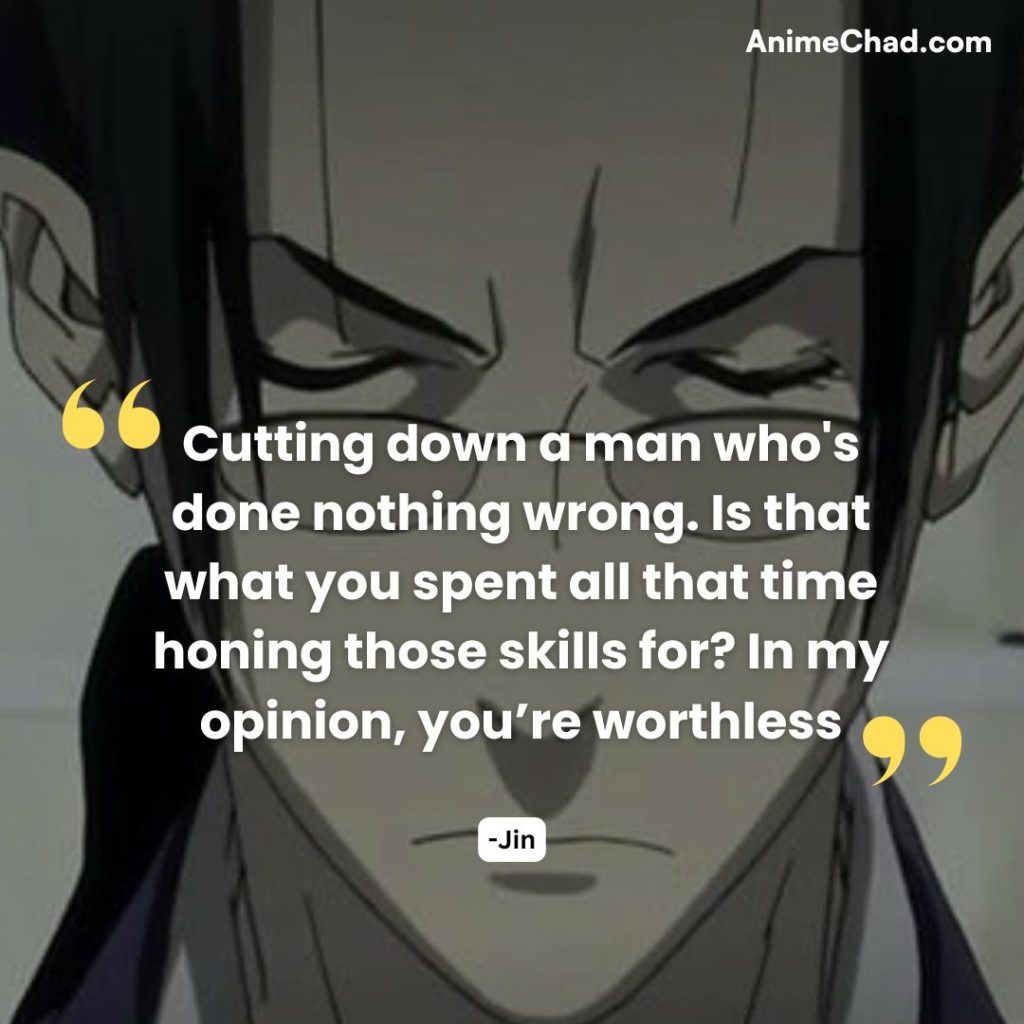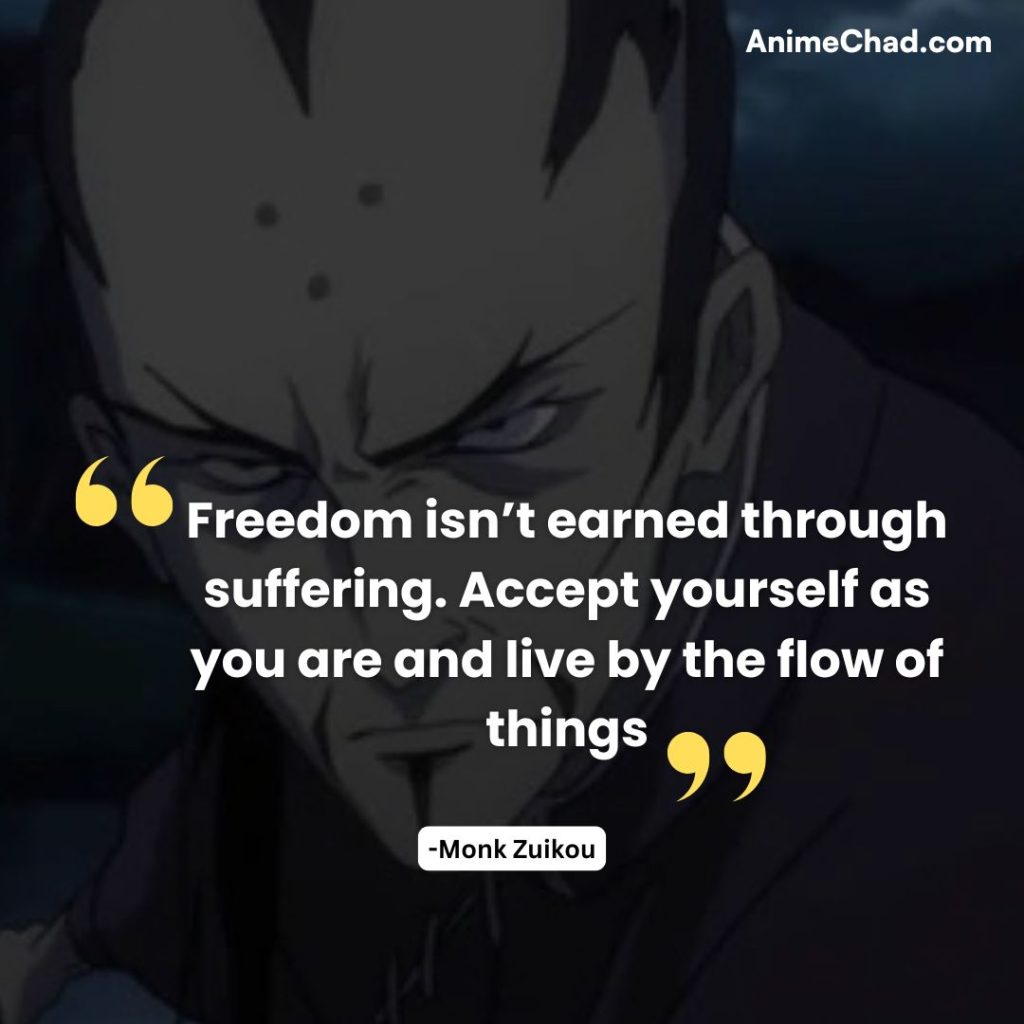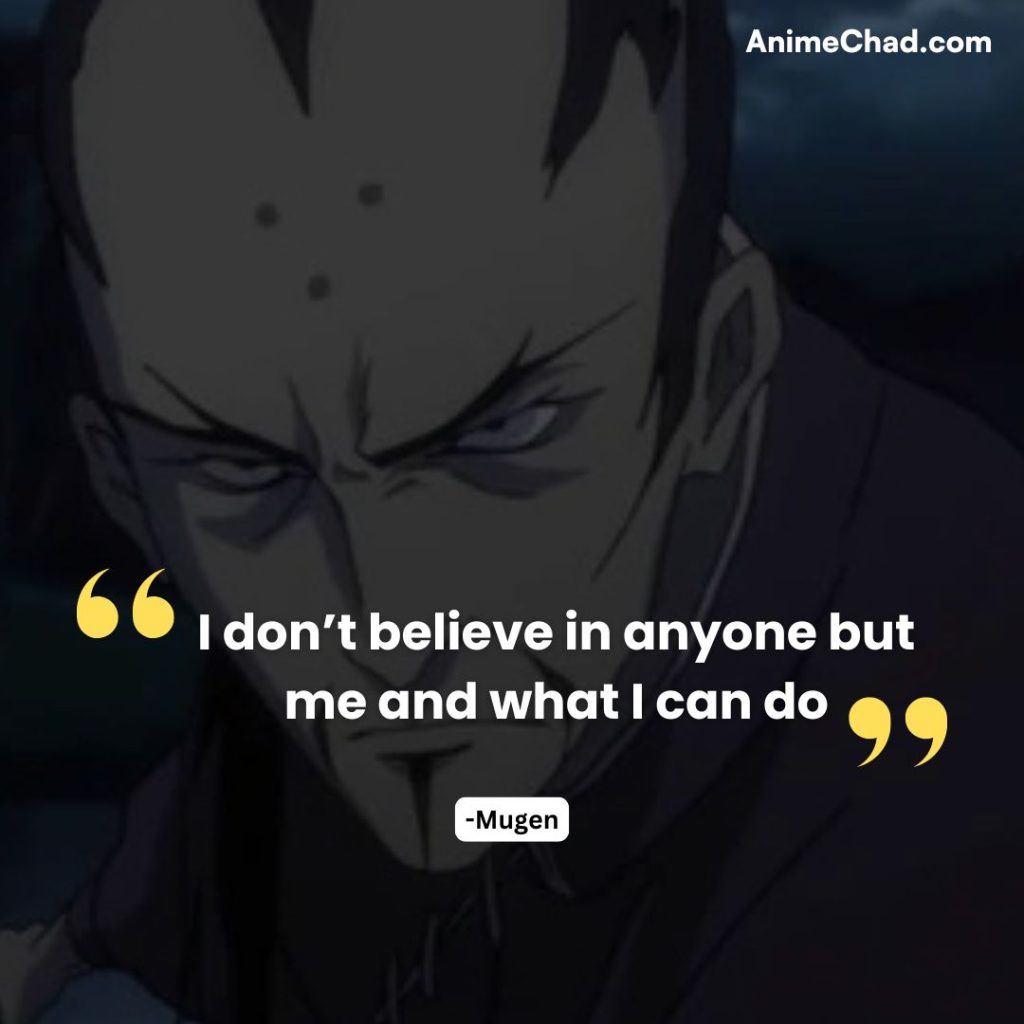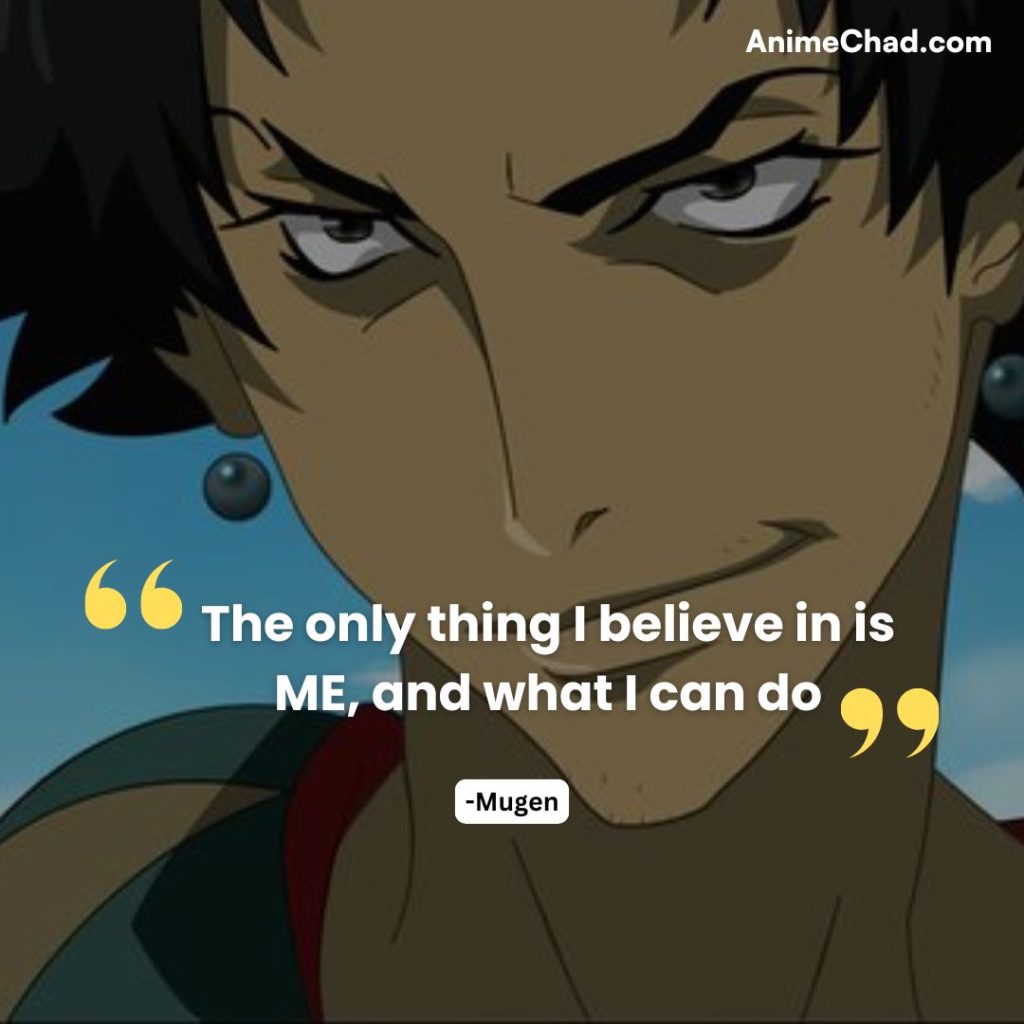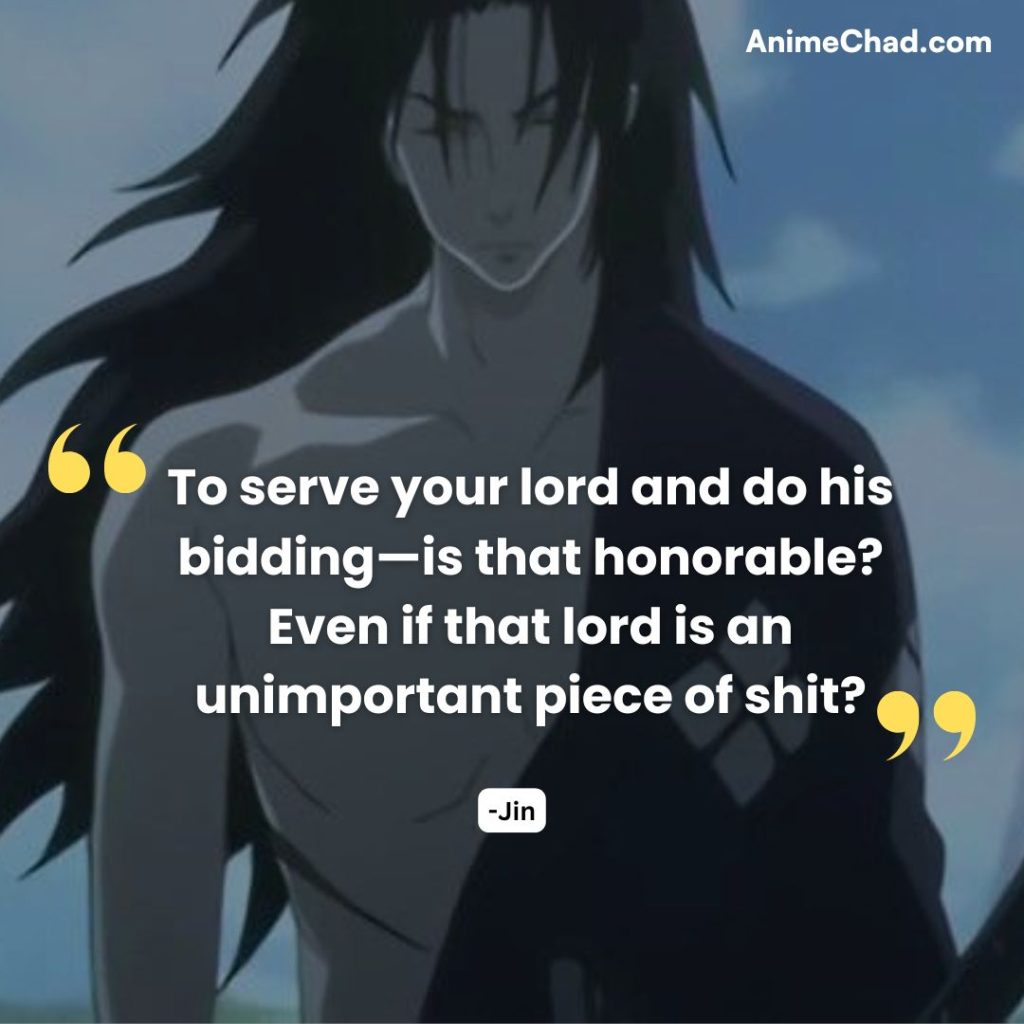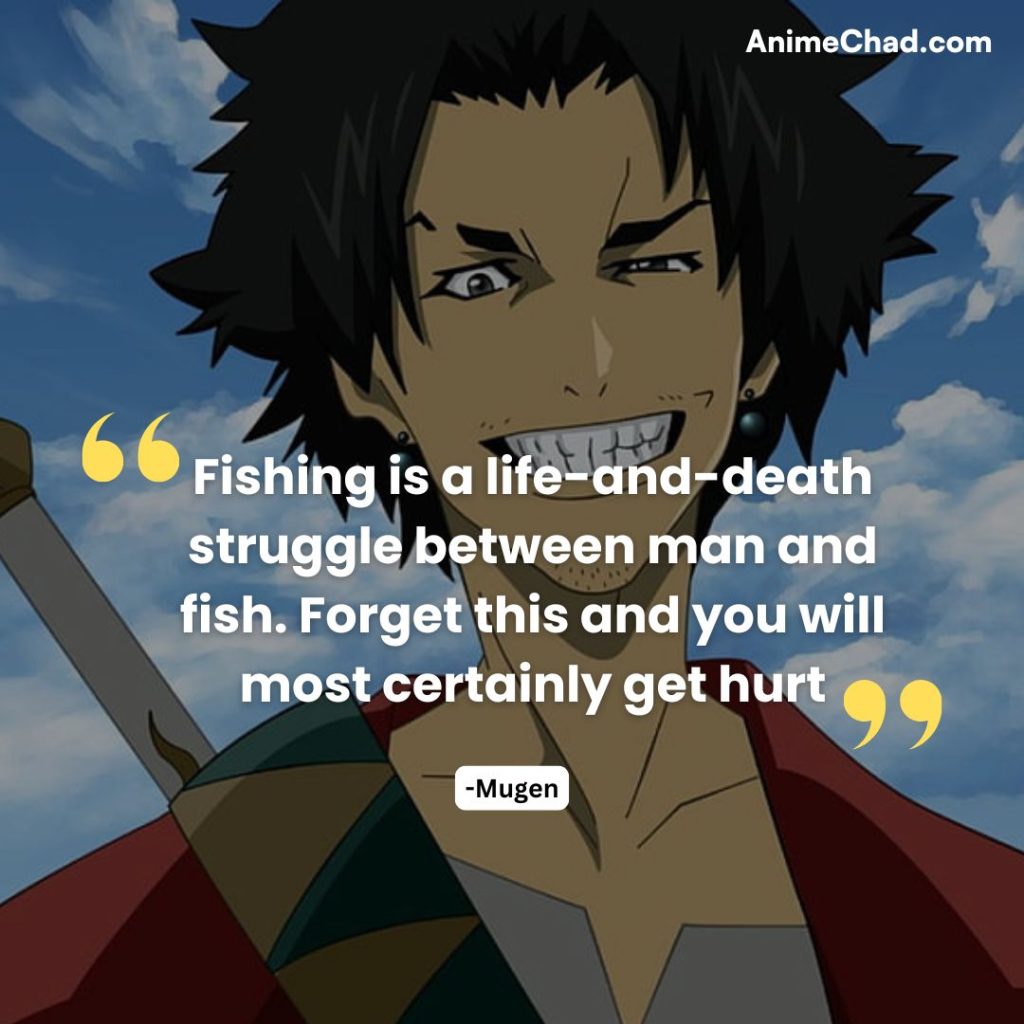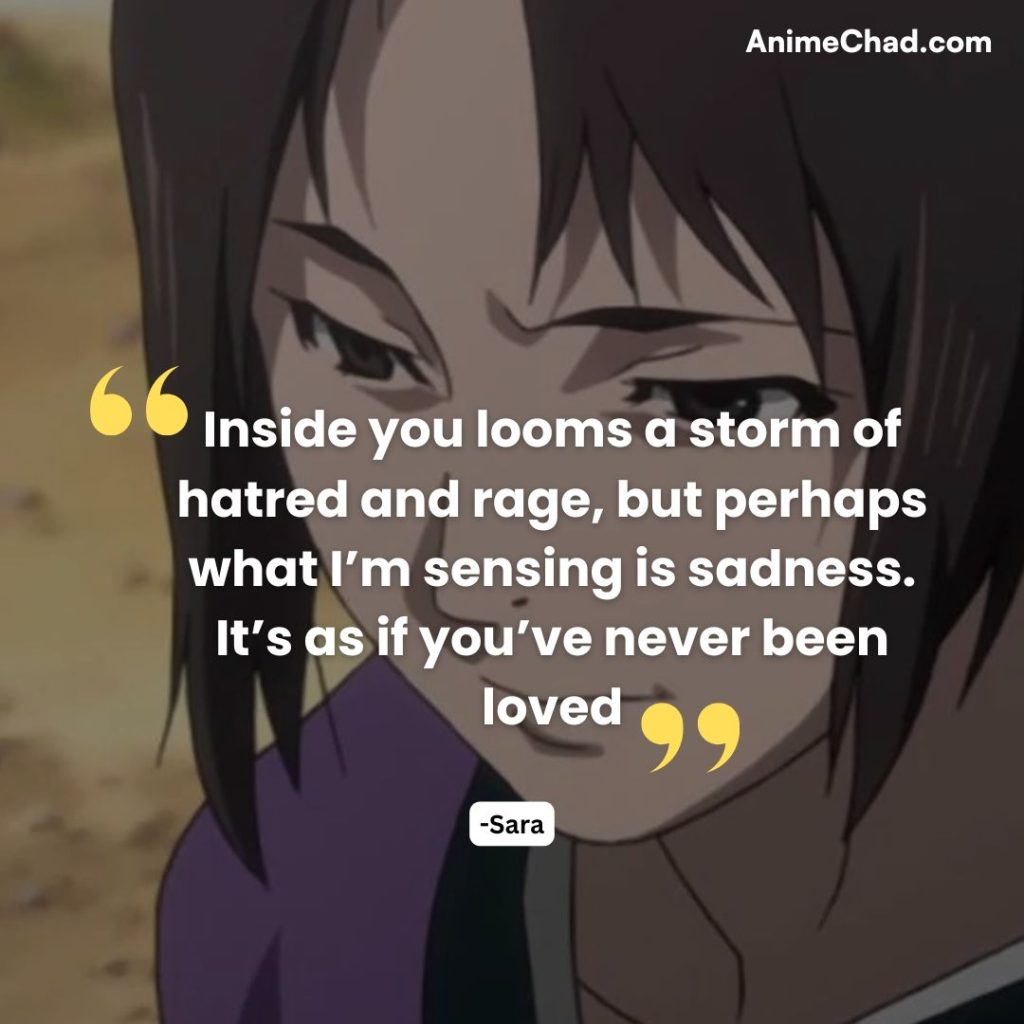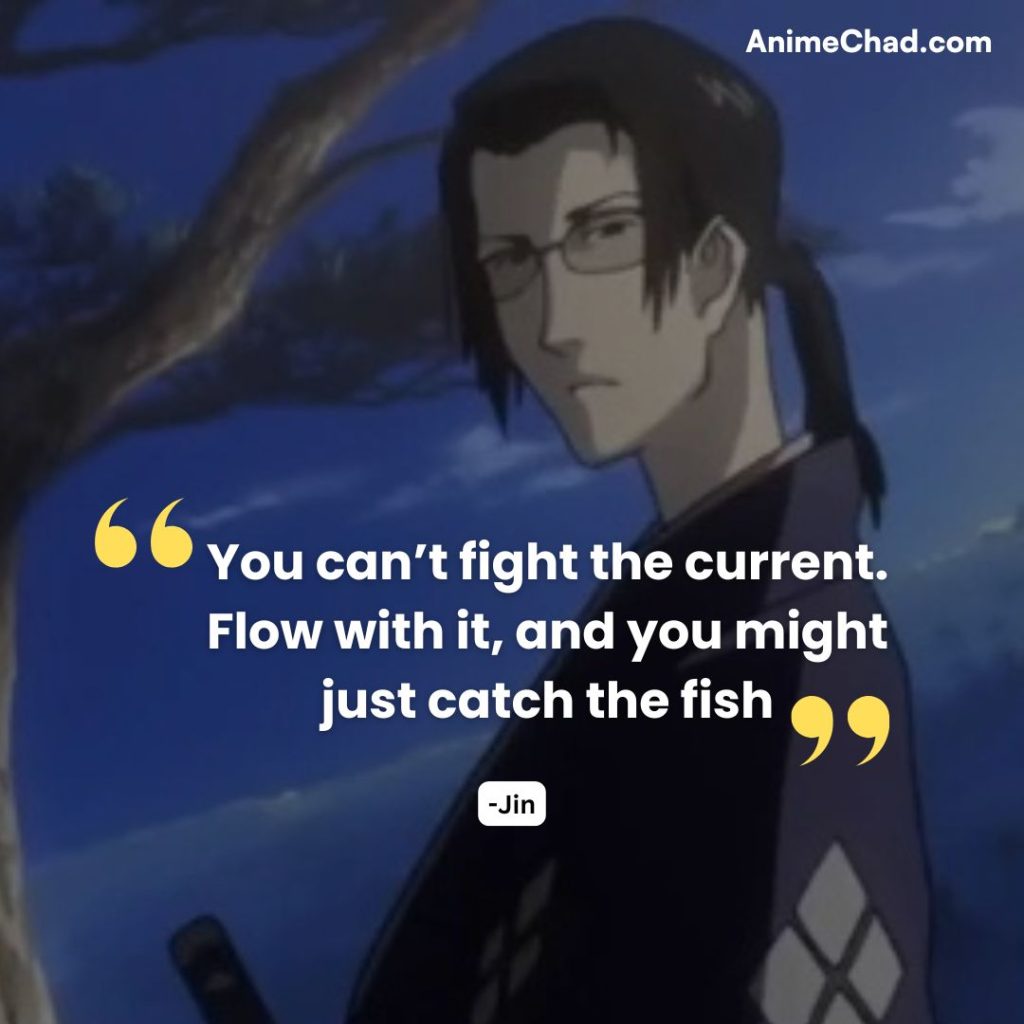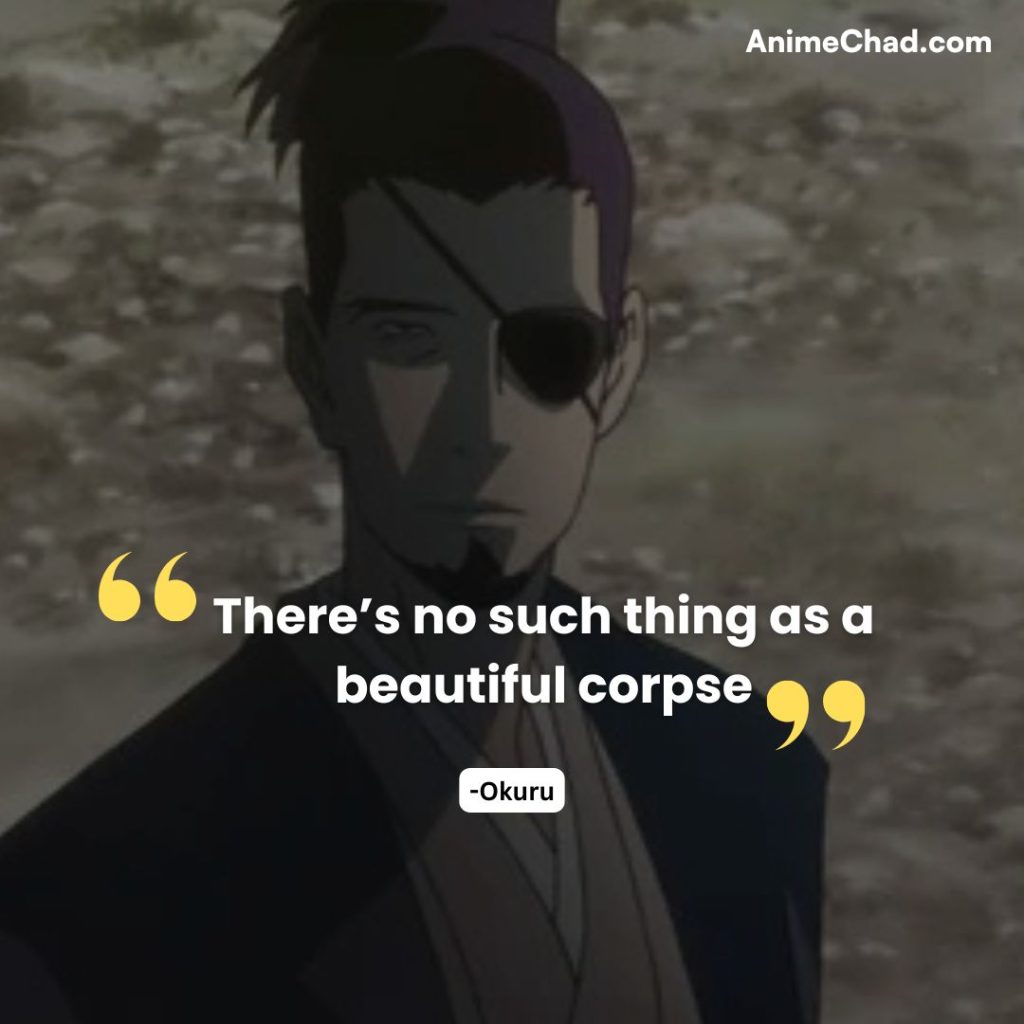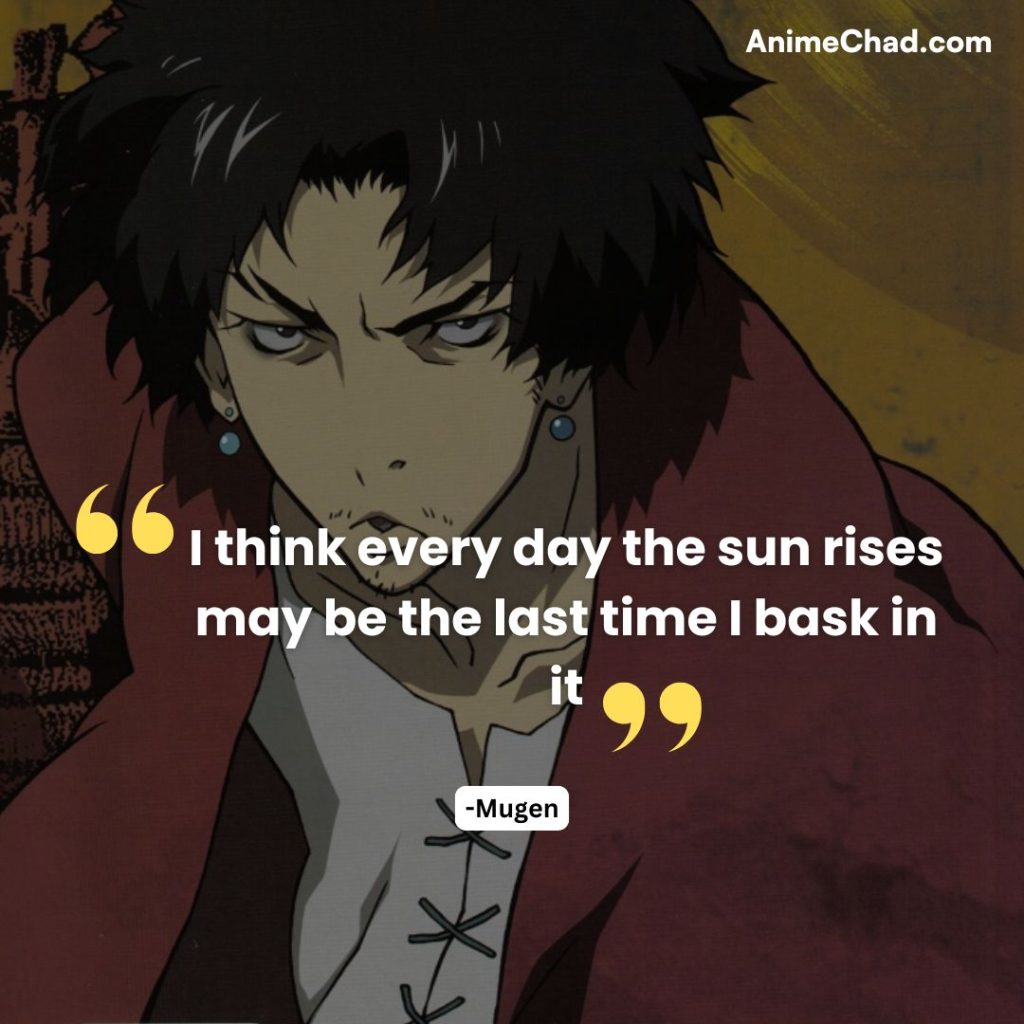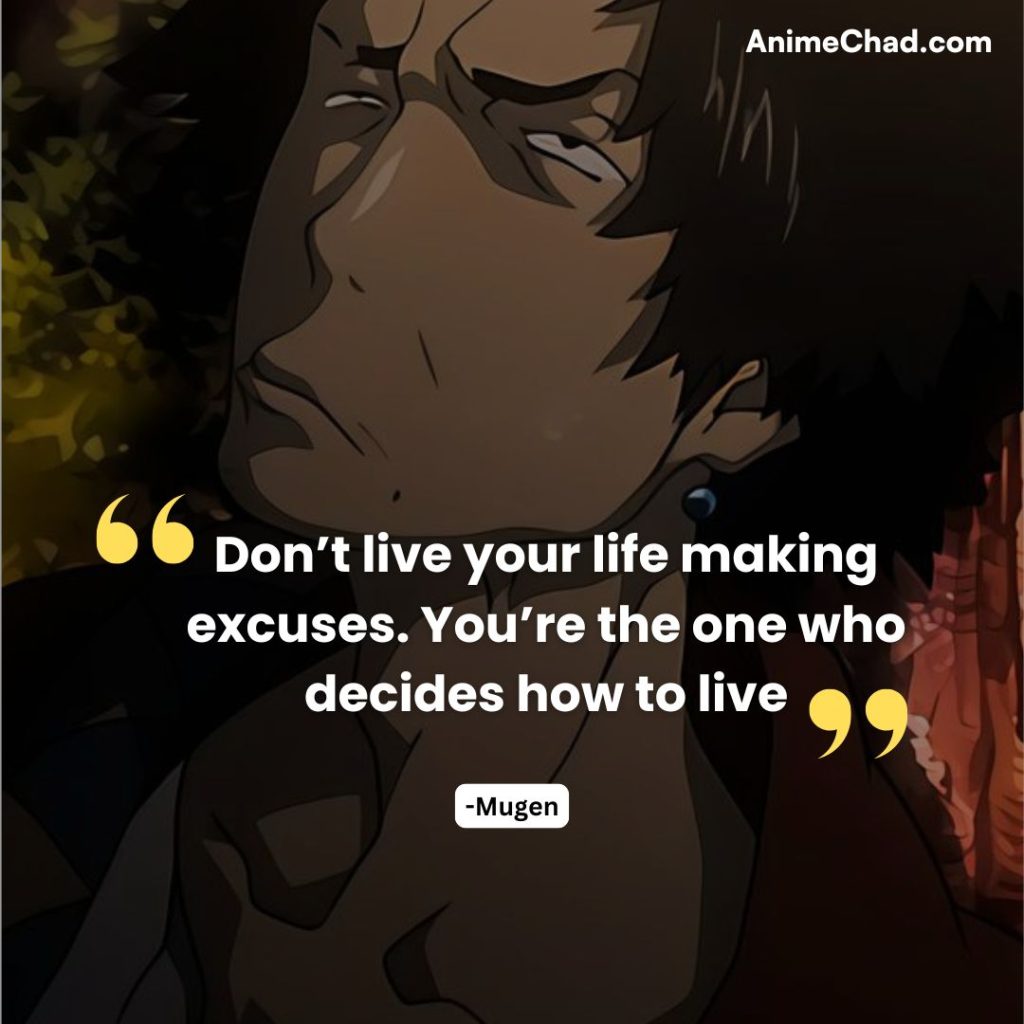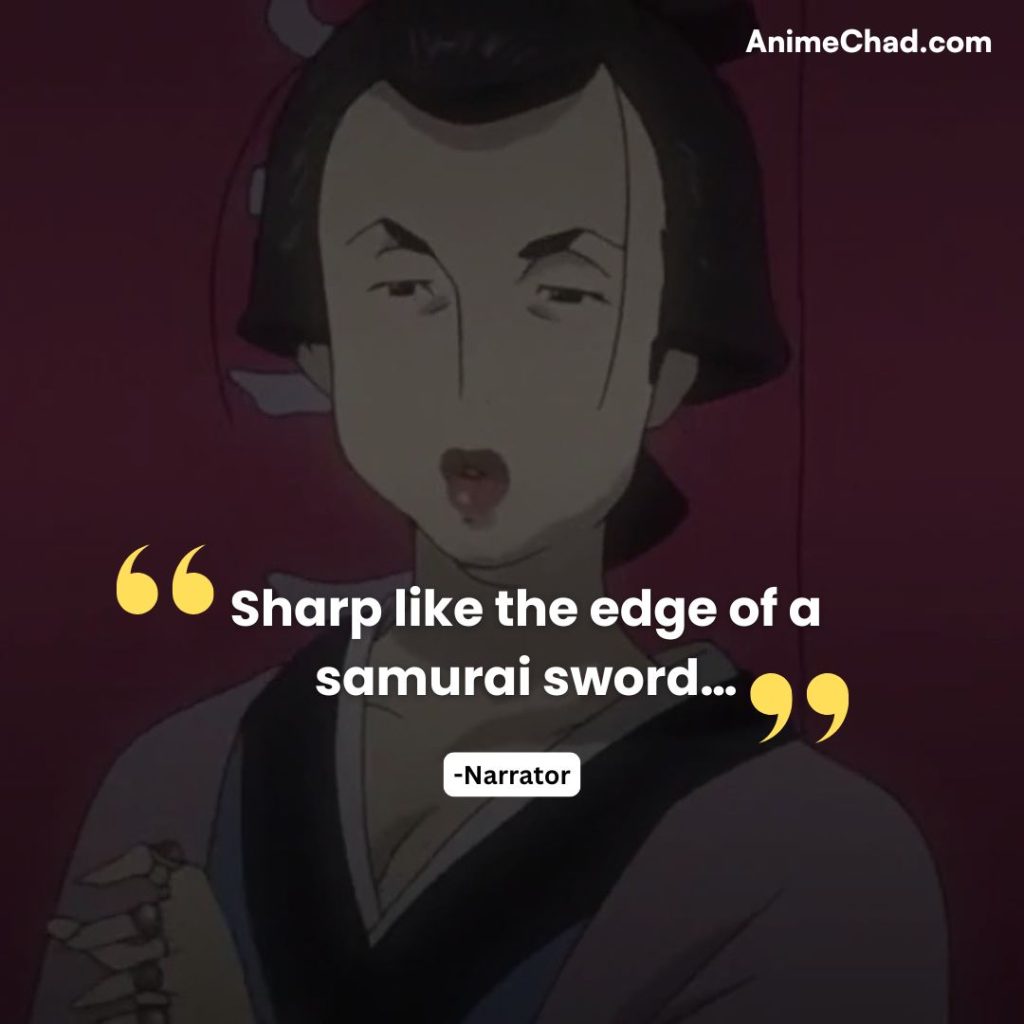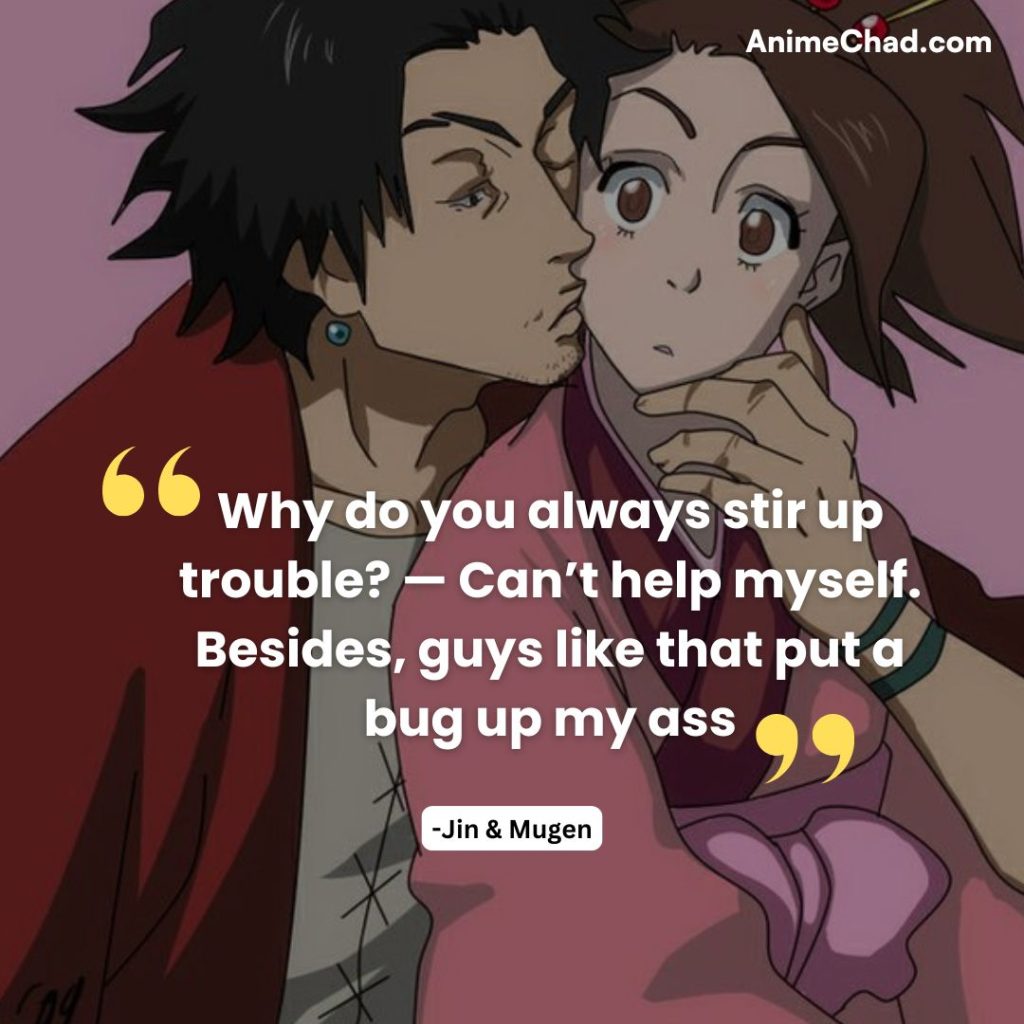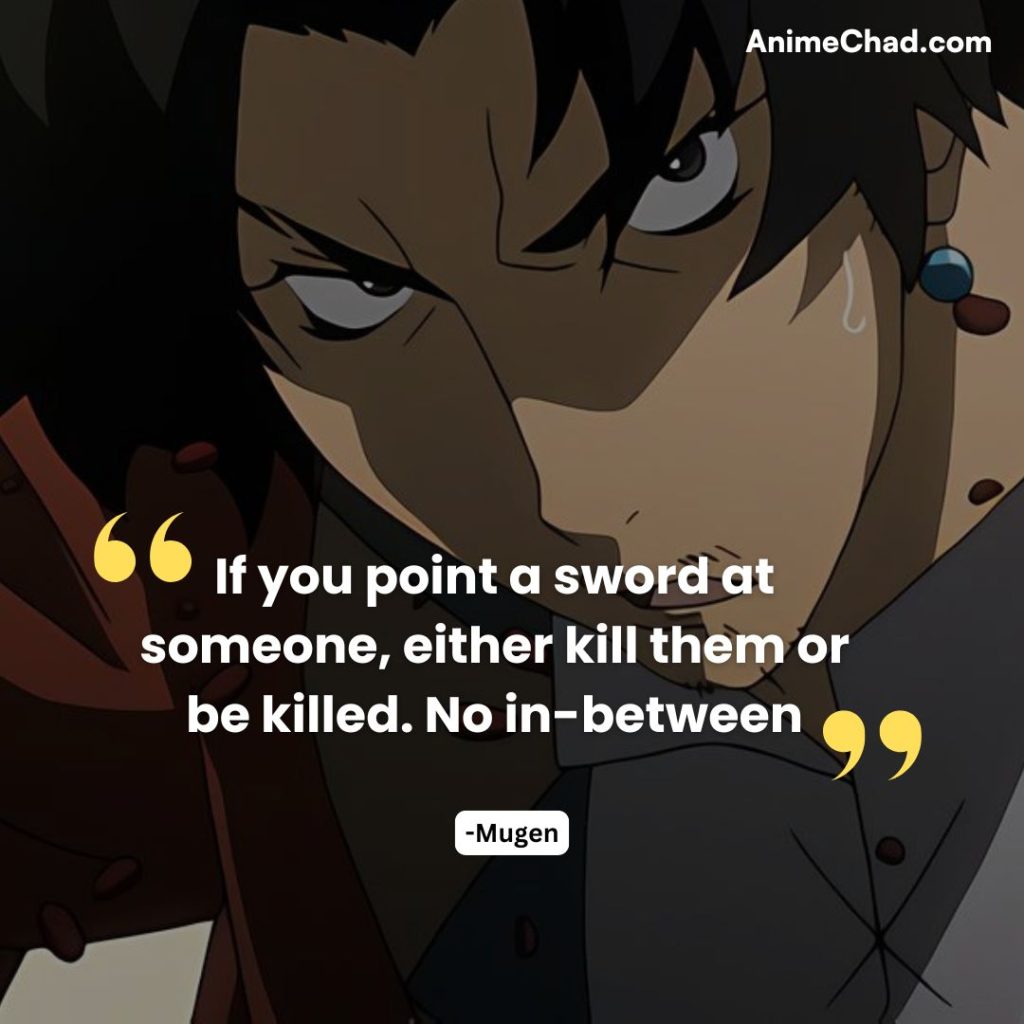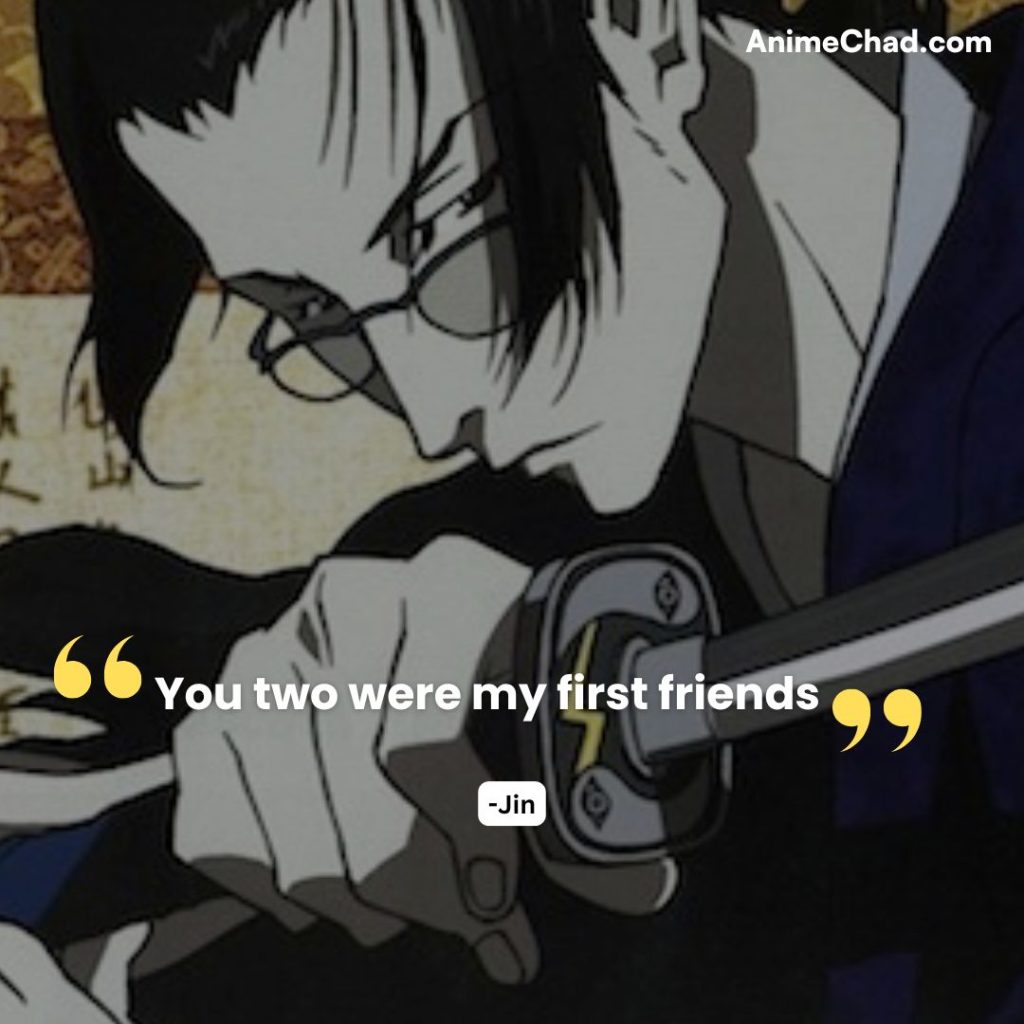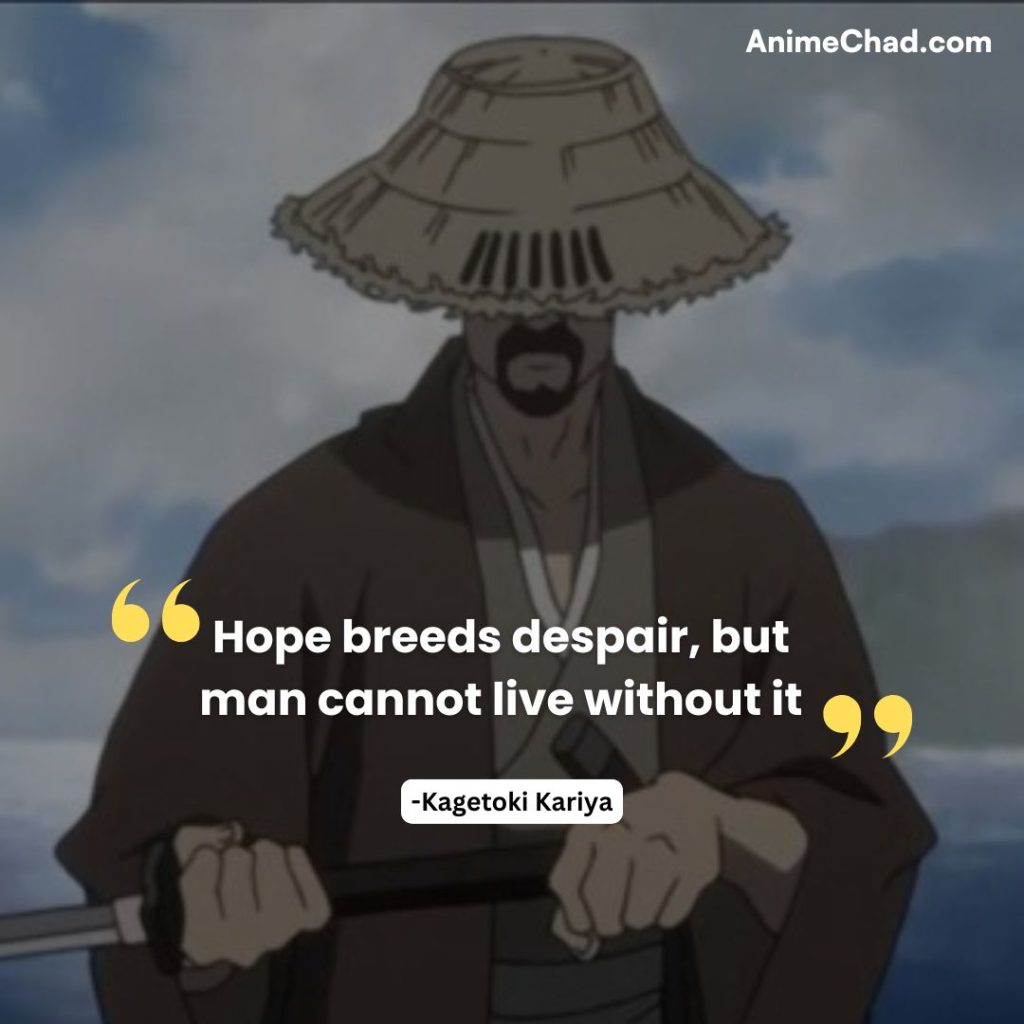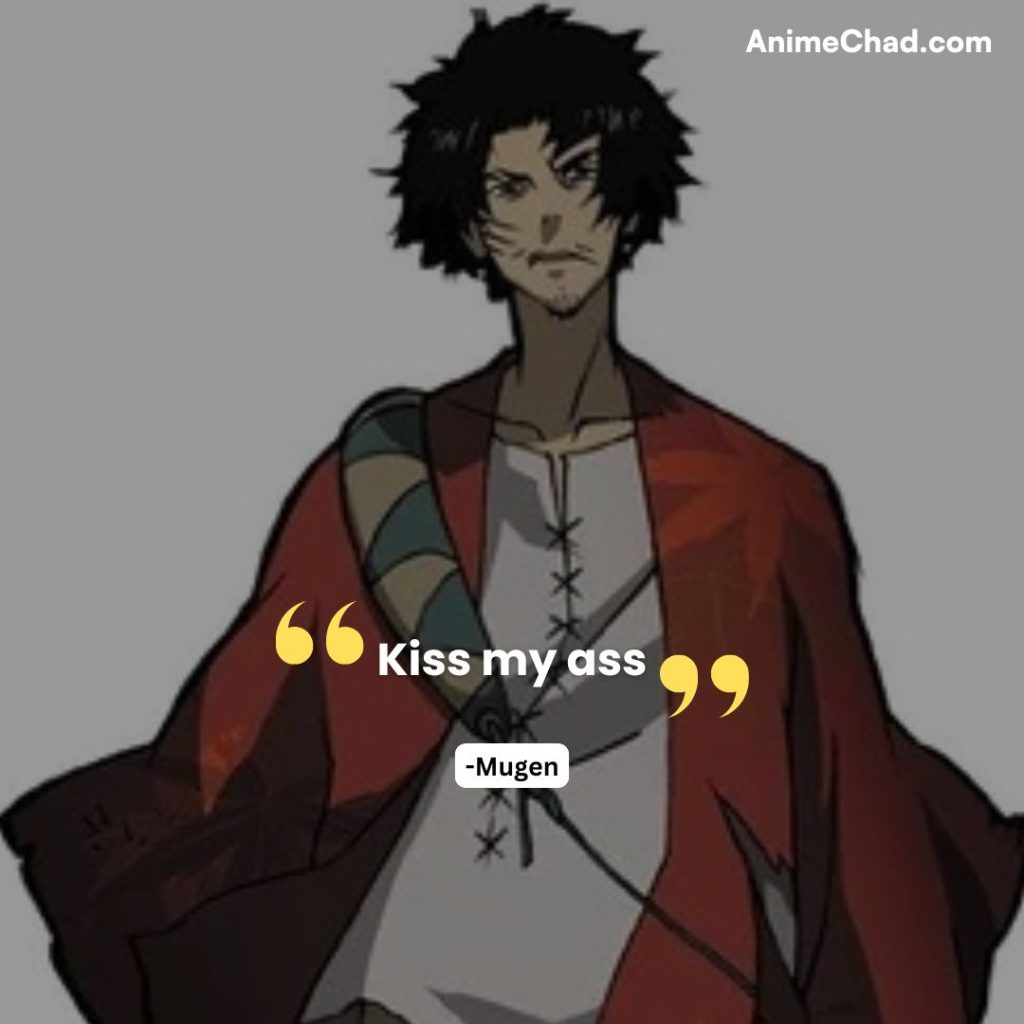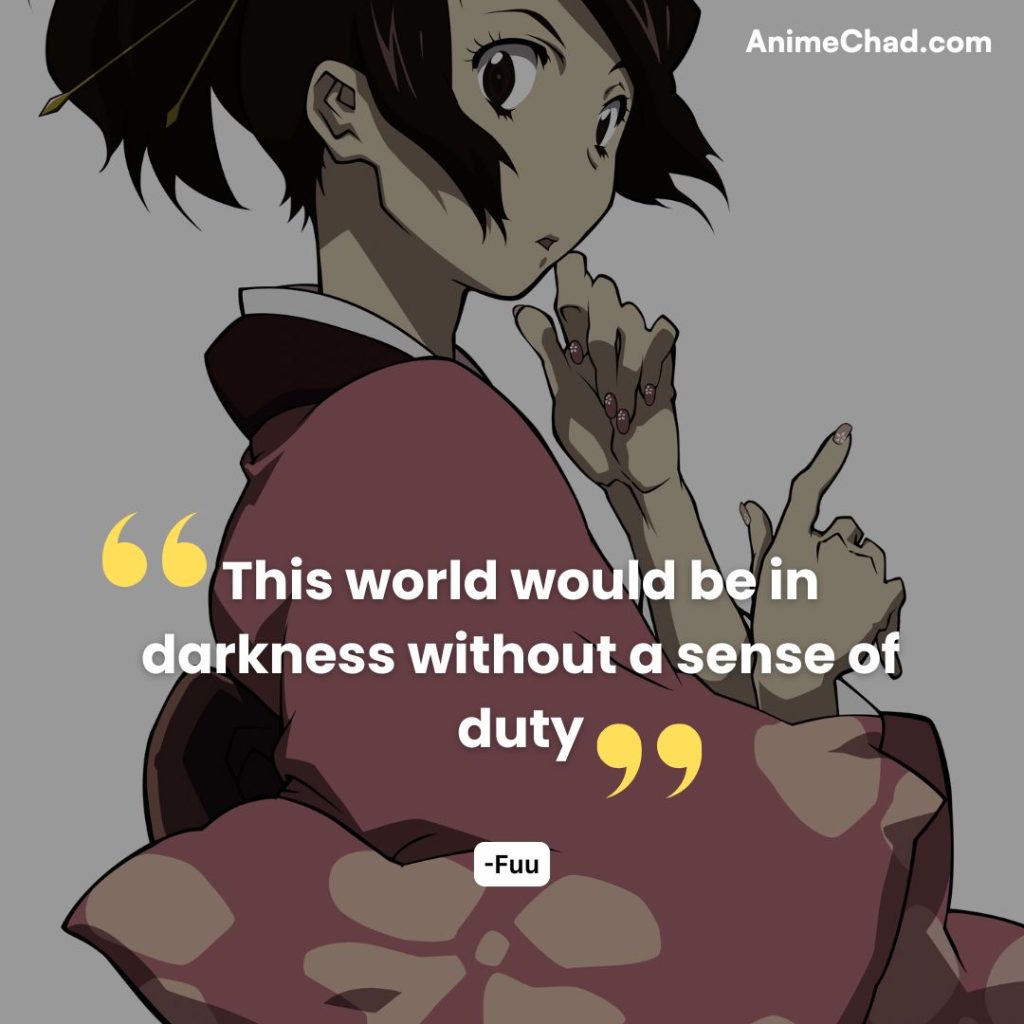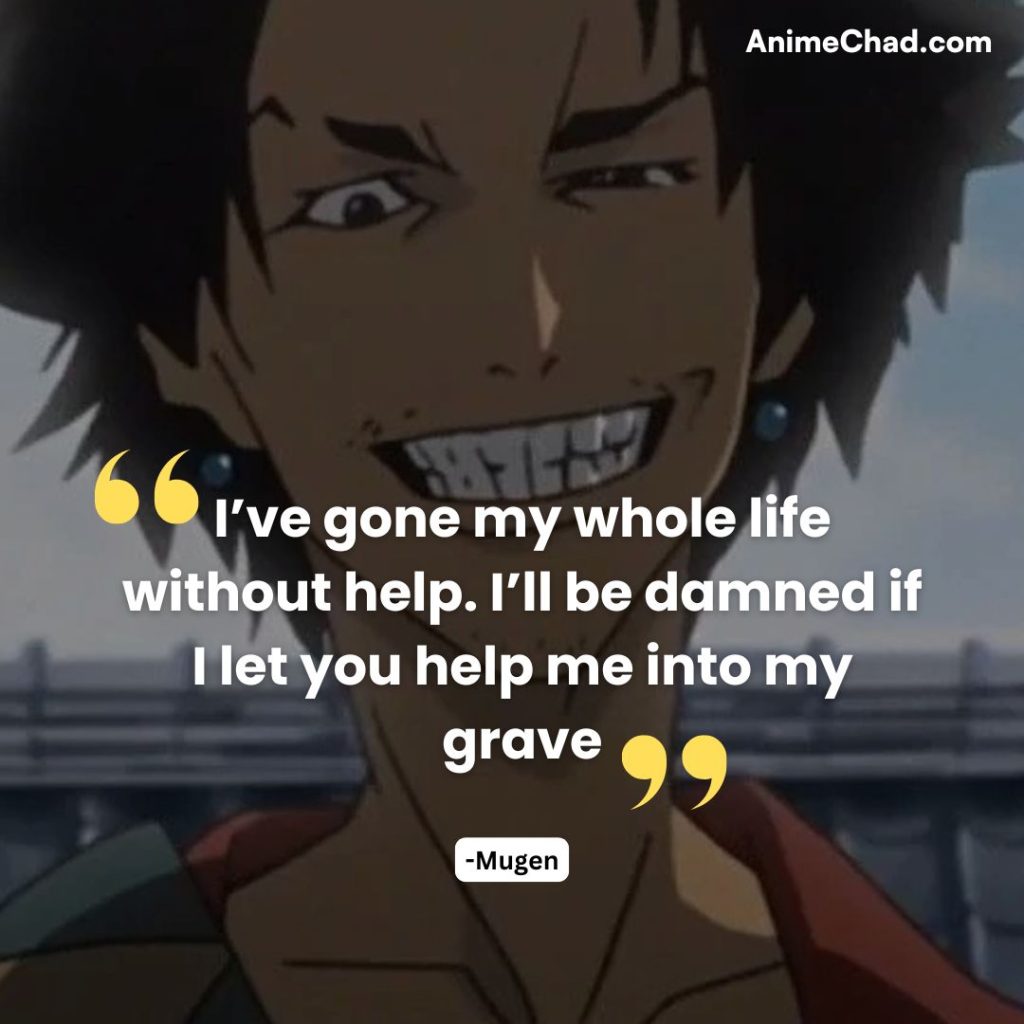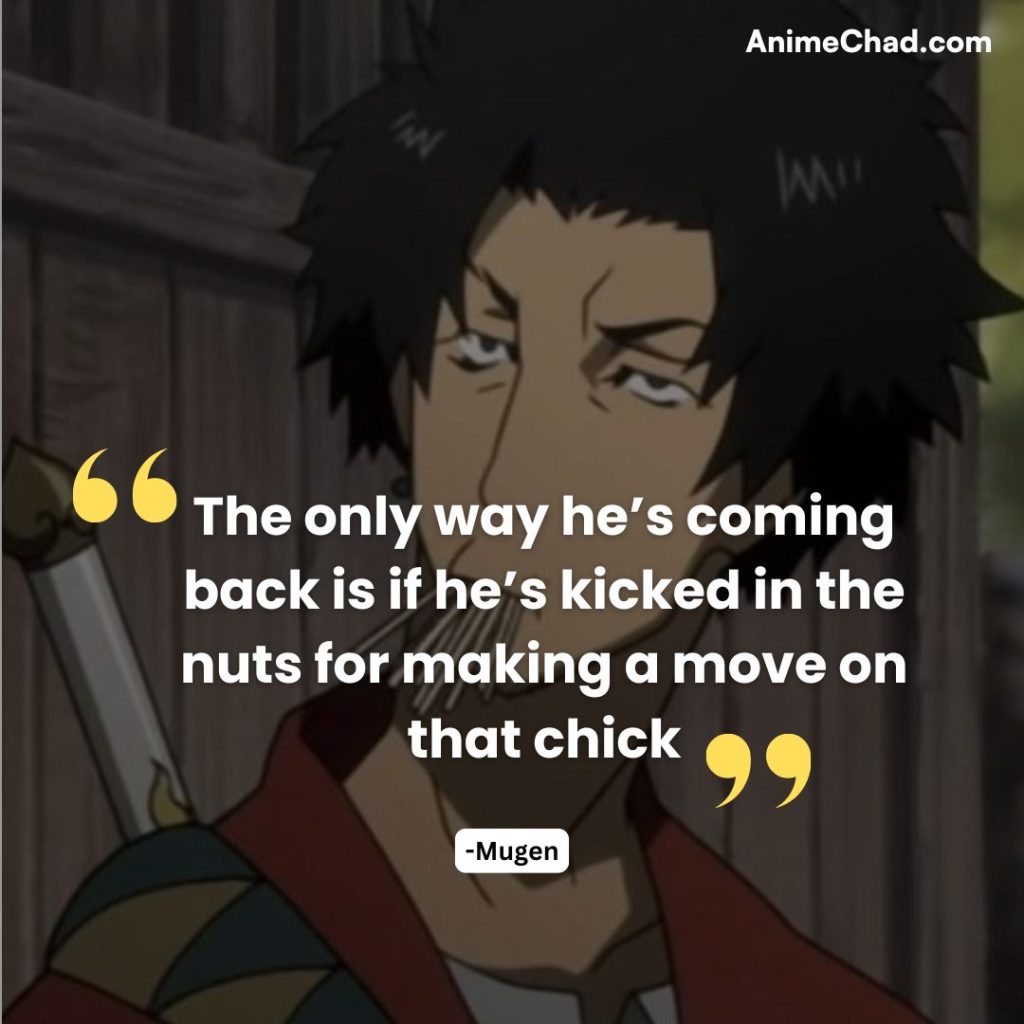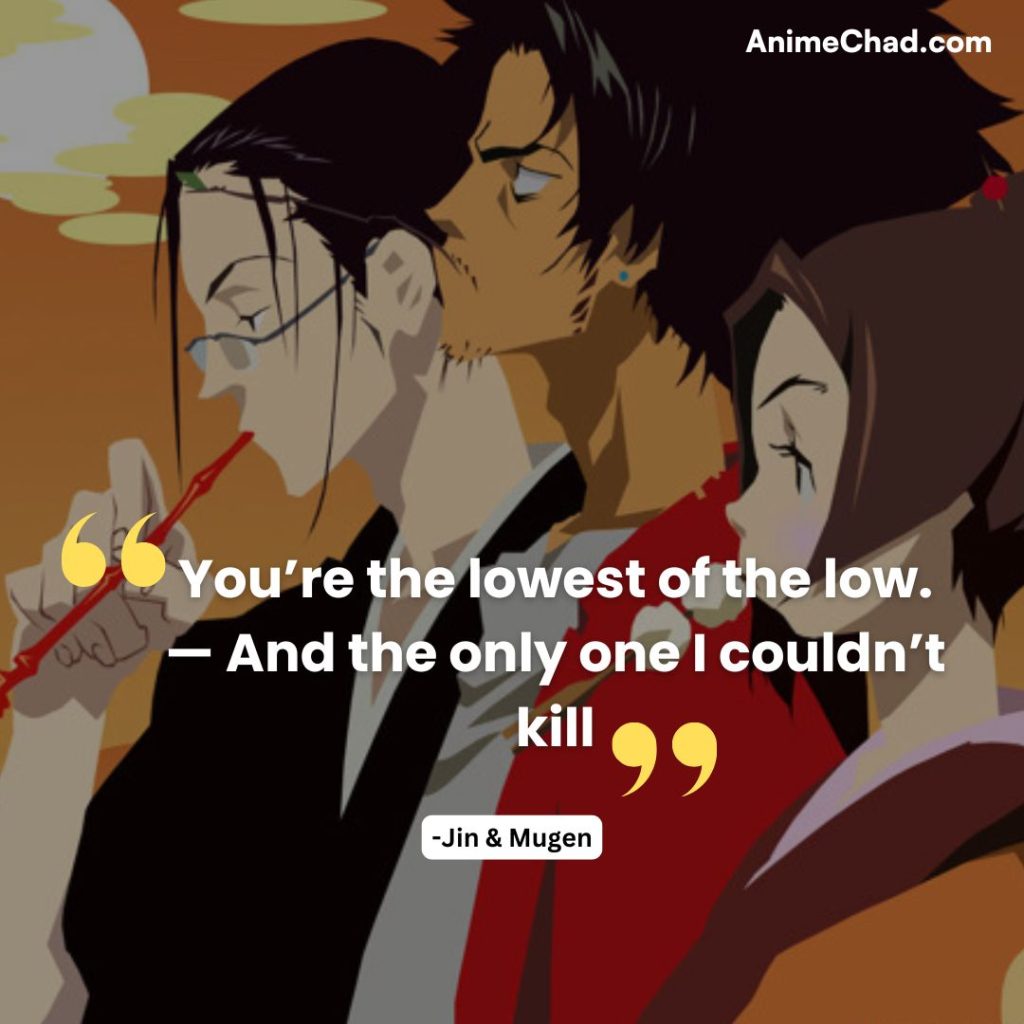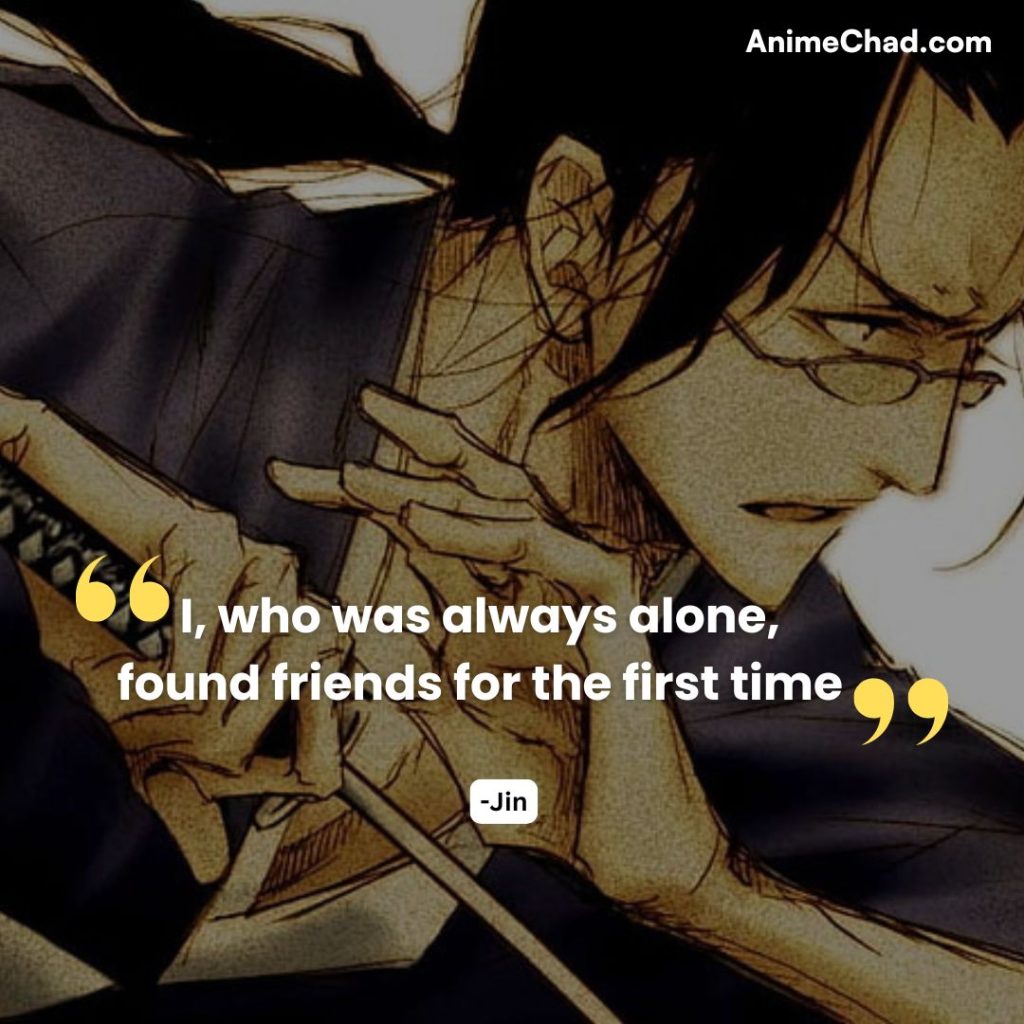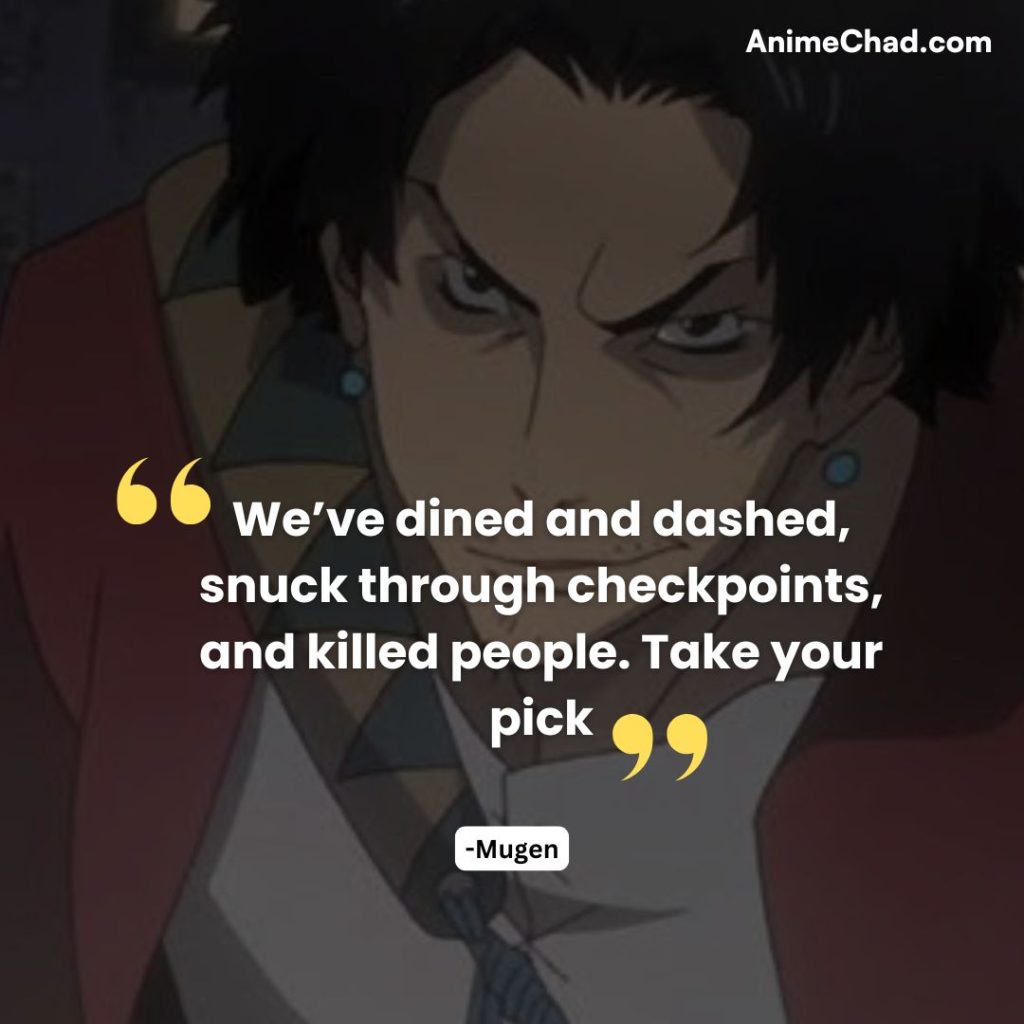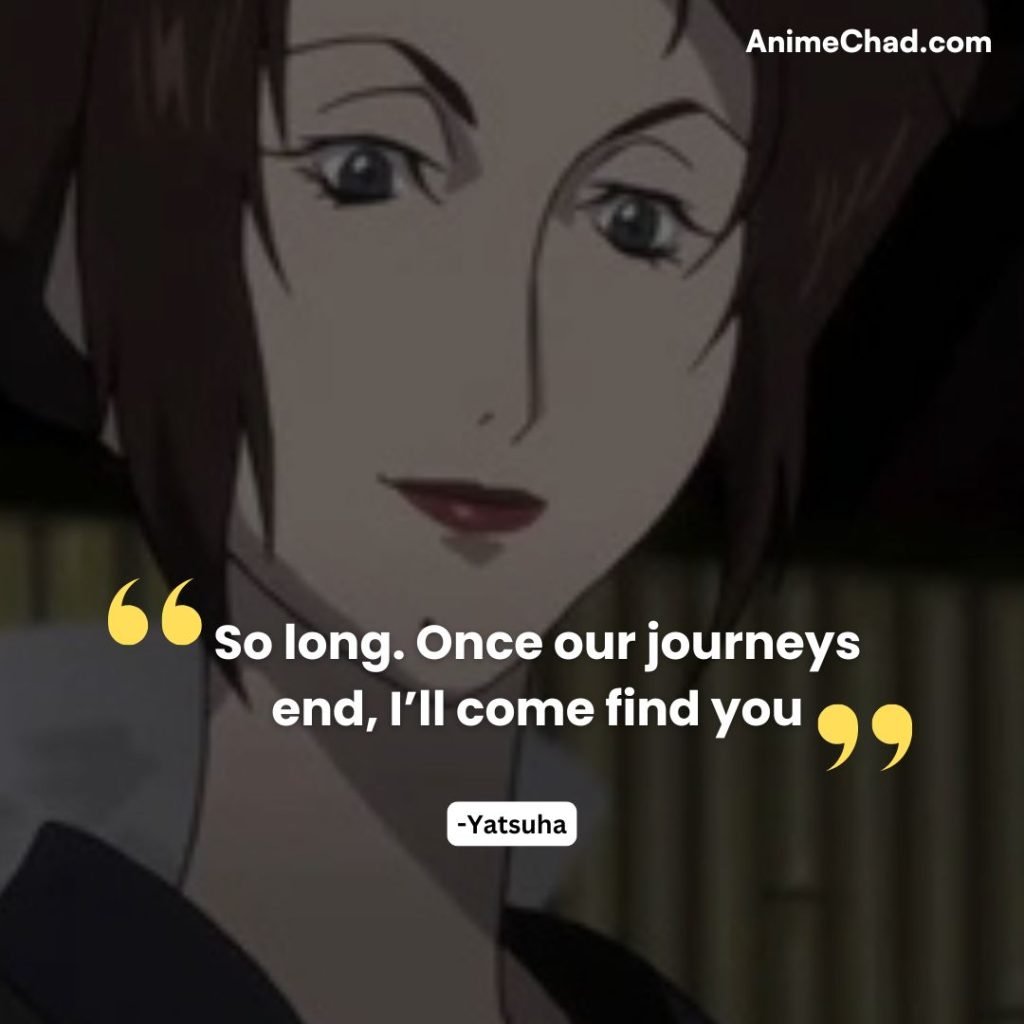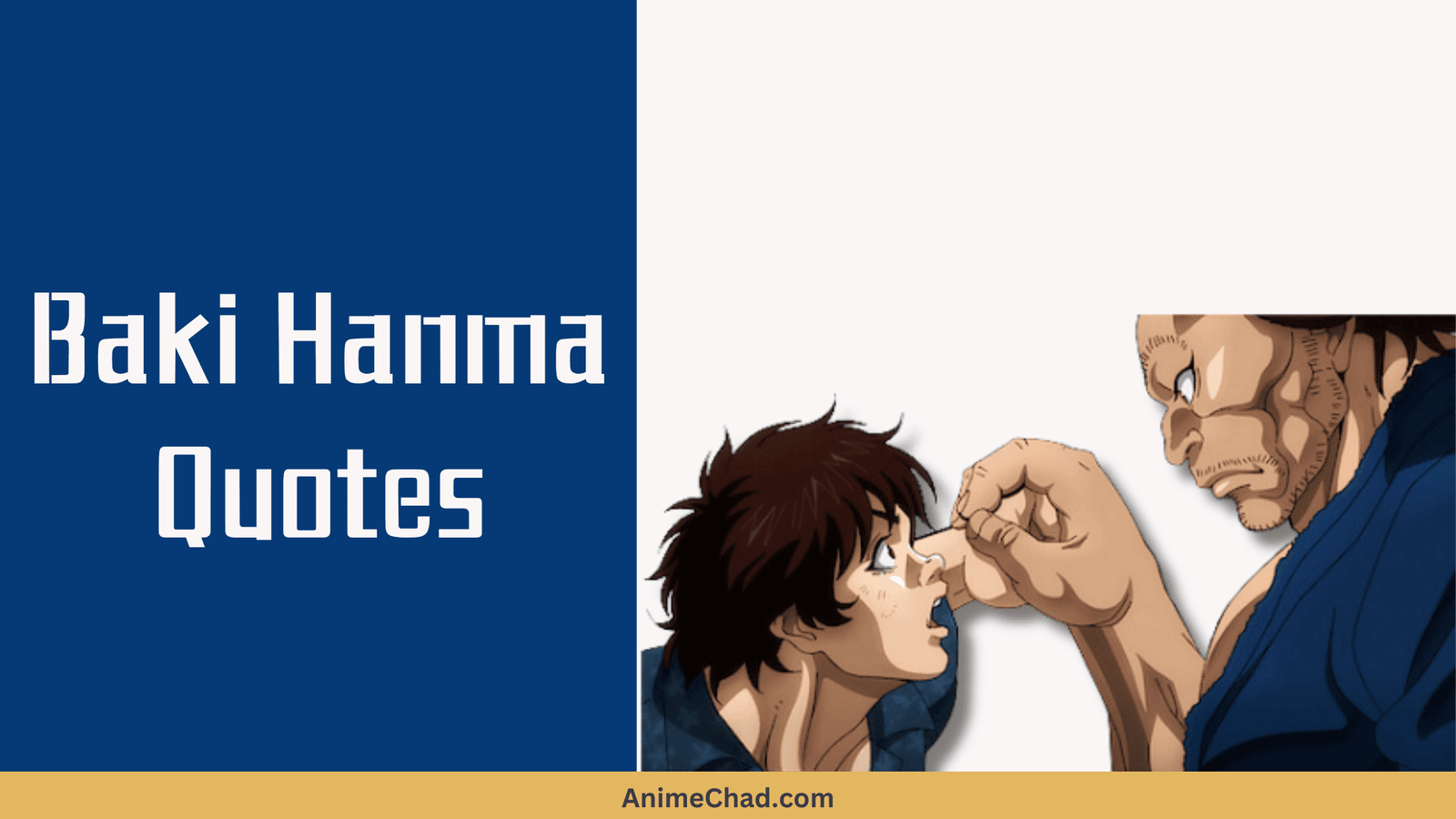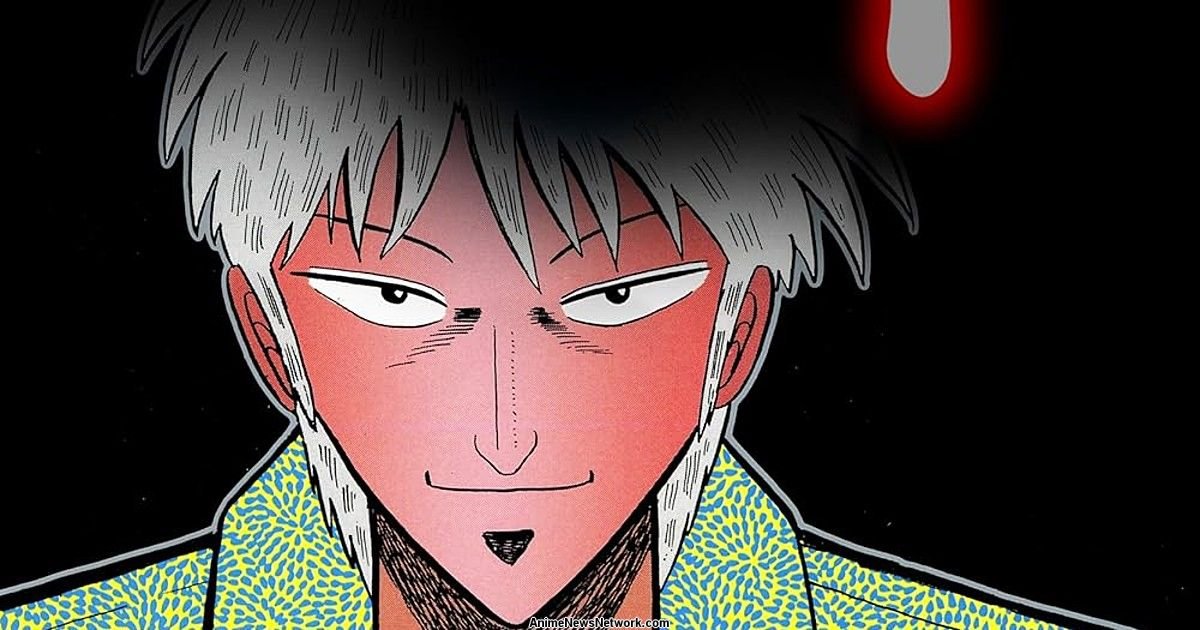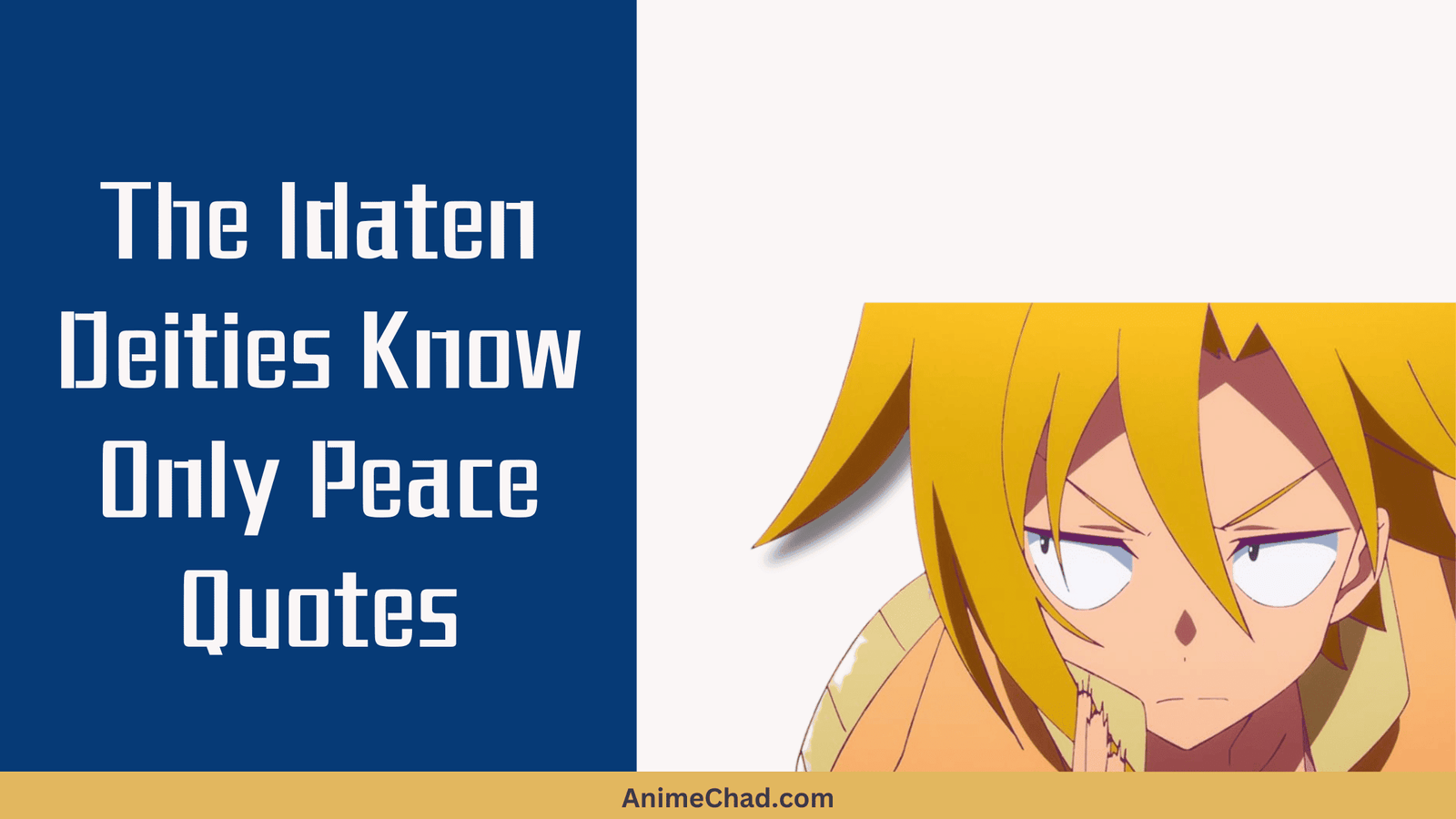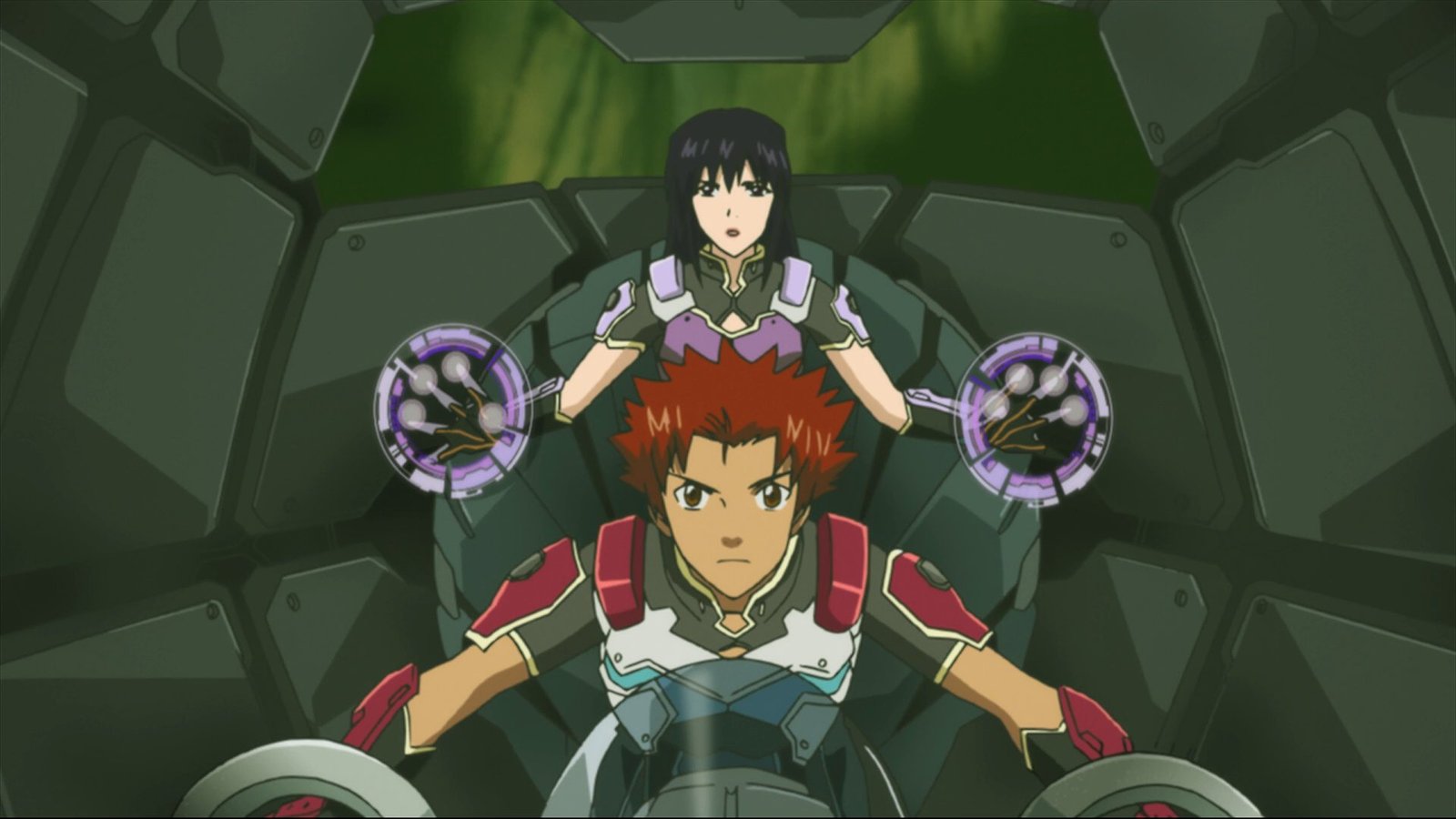Samurai Champloo follows the journey of Fuu, Mugen, and Jin—a trio united by fate in Edo-era Japan—blending hip-hop culture with samurai ethos.
The series explores themes of existential purpose, freedom, and the clash between tradition and rebellion.
This collection highlights 25 quotes that encapsulate the show’s philosophical depth, character growth, and genre-defying storytelling.
If living means bowing down to the likes of you bastards, I’d rather die on my feet with my head held high
(Episode 4: Hellhounds for Hire)
Mugen
Mugen’s defiance against oppression embodies his rejection of societal conformity and loyalty to self.
Cutting down a man who’s done nothing wrong. Is that what you spent all that time honing those skills for? In my opinion, you’re worthless
(Episode 5: Elegy of Entrapment (Part 1))
Jin
Jin’s moral code clashes with blind allegiance, critiquing the emptiness of violence without purpose.
Freedom isn’t earned through suffering. Accept yourself as you are and live by the flow of things
(Episode 15: Elegy of Entrapment (Verse 2))
Monk Zuikou
Zuikou’s wisdom challenges rigid ideals, advocating for self-acceptance as true liberation.
I don’t believe in anyone but me and what I can do
(Episode 13: Misguided Miscreants)
Mugen
Mugen’s rugged individualism contrasts his eventual reliance on Jin and Fuu, hinting at growth.
The only thing I believe in is ME, and what I can do
(Episode 19: Evanescent Encounter (Part 3))
Mugen
A recurring mantra underscoring Mugen’s journey from lone wolf to reluctant ally.
To serve your lord and do his bidding—is that honorable? Even if that lord is an unimportant piece of shit?
(Episode 5: Elegy of Entrapment (Part 1))
Jin
Jin’s disdain for blind loyalty deconstructs traditional samurai values.
Fishing is a life-and-death struggle between man and fish. Forget this and you will most certainly get hurt
(Episode 7: A Risky Racket)
Mugen
A metaphor for Mugen’s approach to survival: relentless, instinctual, and unapologetic.
Inside you looms a storm of hatred and rage, but perhaps what I’m sensing is sadness. It’s as if you’ve never been loved
(Episode 24: Evanescent Encounter (Part 2))
Sara
Sara’s insight into Mugen’s isolation reveals his vulnerability beneath the bravado.
You can’t fight the current. Flow with it, and you might just catch the fish
(Episode 24: Evanescent Encounter (Part 2))
Jin
Jin’s advice to Mugen mirrors his own acceptance of life’s unpredictability.
There’s no such thing as a beautiful corpse
(Episode 10: Gamblers and Gallantry)
Okuru
A grim reminder of mortality, contrasting Fuu’s idealized view of death.
I think every day the sun rises may be the last time I bask in it
(Episode 19: Evanescent Encounter (Part 3))
Mugen
Mugen’s existential reflection highlights his embrace of life’s fragility.
Don’t live your life making excuses. You’re the one who decides how to live
(Episode 16: Lullabies of the Lost)
Mugen
Mugen’s blunt philosophy pushes Fuu to take agency in her quest.
Sharp like the edge of a samurai sword…
(Opening Monologue)
Narrator
The iconic opener, blending hip-hop flair with the series’ razor-sharp themes.
Why do you always stir up trouble? — Can’t help myself. Besides, guys like that put a bug up my ass
(Episode 3: A Risky Racket)
Jin & Mugen
Their banter encapsulates their contrasting personalities and reluctant camaraderie.
If you point a sword at someone, either kill them or be killed. No in-between
(Episode 9: Beatbox Bandits)
Mugen
Mugen’s brutal pragmatism contrasts Jin’s disciplined approach to combat.
You two were my first friends
(Episode 26: Evanescent Encounter (Final))
Jin
A rare admission of vulnerability, cementing the trio’s bond.
Hope breeds despair, but man cannot live without it
(Episode 24: Evanescent Encounter (Part 2))
Kagetoki Kariya
A villain’s nihilistic view that challenges the protagonists’ resolve.
Kiss my ass
(Episode 7: A Risky Racket)
Mugen
Mugen’s irreverent humor lightens the series’ darker themes.
This world would be in darkness without a sense of duty
(Episode 18: War of the Words)
Fuu
Fuu’s idealism contrasts her companions’ cynicism, grounding their journey.
I’ve gone my whole life without help. I’ll be damned if I let you help me into my grave
(Episode 22: Cosmic Collisions)
Mugen
Mugen’s stubborn pride clashes with his growing trust in others.
The only way he’s coming back is if he’s kicked in the nuts for making a move on that chick
(Episode 20: Evanescent Encounter (Part 1))
Mugen
Crude humor underscoring Mugen’s loyalty to Fuu and Jin.
You’re the lowest of the low. — And the only one I couldn’t kill
(Episode 14: Misguided Miscreants)
Jin & Mugen
Their rivalry evolves into mutual respect, defining their complex dynamic.
I, who was always alone, found friends for the first time
(Episode 26: Evanescent Encounter (Final))
Jin
Jin’s closure on his solitary past, embracing connection.
We’ve dined and dashed, snuck through checkpoints, and killed people. Take your pick
(Episode 24: Evanescent Encounter (Part 2))
Mugen
A darkly comic summary of their chaotic journey.
So long. Once our journeys end, I’ll come find you
(Episode 12: The Disorder Diaries)
Yatsuha
A side character’s bittersweet farewell, mirroring the series’ transient relationships.
These quotes capture Samurai Champloo’s essence: a fusion of rebellion and introspection, where every sword strike and snarky retort carves a path toward self-discovery.

